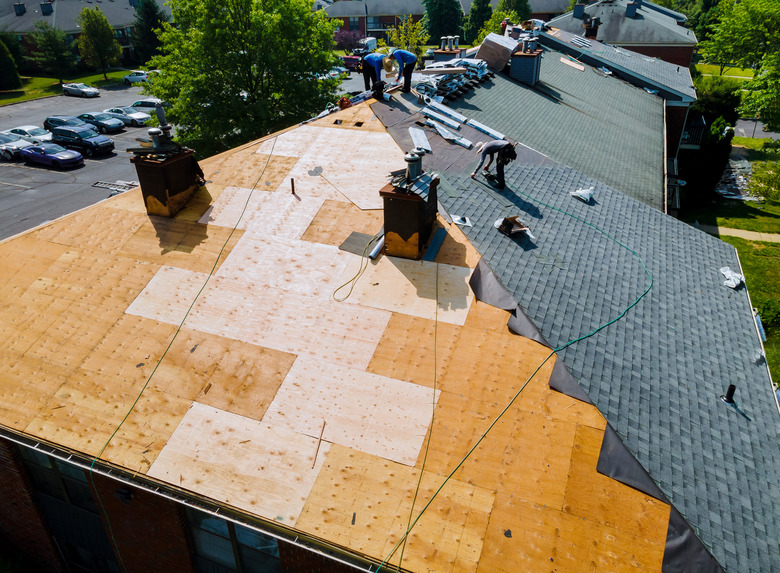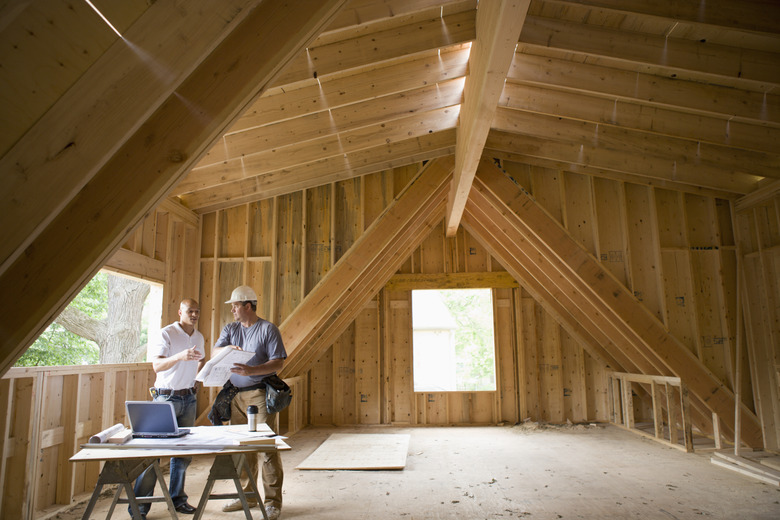Where Do Homeowners Find A Good Contractor?
When homeowners decide to move forward with a home improvement project, one of the hardest parts of the process is finding a dependable local contractor to do the work. Whether you need a handyman to handle some home repairs, a plumber to help with a minor kitchen remodel project, or a general contractor and a team of subcontractors for a massive home renovation, it's important to find a good contractor you can trust. After all, you don't want to find out too late that your contractor doesn't have the necessary skills or experience, that the work is not up to code, or that you hired a con man who skipped town after getting your down payment.
So, where exactly do you find one of these mystical contractors? Here are a few good places to start.
Personal Referrals From Other Homeowners
Personal Referrals From Other Homeowners
One of the most tried and true methods for finding a contractor is simply asking other homeowners about their personal experiences with the contractor who handled their home improvements. Consider asking friends, relatives, co-workers, neighbors, and other acquaintances if they have had similar work done. Get the details on who they hired and how satisfied they were with the contractor.
On the downside, if your acquaintance has a personal relationship with the contractor, they may want to help her friend or family member get extra work by exaggerating about the person's skills, knowledge, or experience.
Ask Some Professionals
Ask Some Professionals
People who work in real estate, property management, construction, or home insurance can be particularly useful with referrals because they often work with a variety of contractors. If you have any acquaintances who are in these lines of work, it can pay to make some calls, but even if you don't, you can always call your insurance agent or the real estate agent who sold you your house. In some cases, you can even get a discount if the referral comes from your insurance agency.
While most insurance companies will not require homeowners to work with their recommended contractors (even if they are paying for the repairs), it never hurts to find out who your insurance agent recommends.
Online Neighborhood Groups
Online
Neighborhood Groups
Sometimes, homeowners who don't personally know anyone else who has hired a contractor head to online communities for their local areas and then ask for referrals there. While the most common site used for this purpose is Nextdoor, you can also use Craigslist's community section, Facebook local groups, and Facebook's new neighborhood feature. It's worth noting that Nextdoor also has a local partnership network that displays professionals with profiles from the Handy, HomeAdvisor, and Thumbtack networks, though this feature is more similar to the home service directories from which it pulls listings than the community-based network for which Nextdoor is known.
What distinguishes neighborhood groups from typical review sites is that when someone gives you a referral for a business as a response to your question, you can often ask them some follow-up questions — for example, how much the work cost or if a recommended contractor performs certain types of work. But, while these community websites can be a good starting point for finding a potential contractor, it's important to do more research to verify the qualifications and experience of anyone who is recommended to you on these sites. Many people have been scammed by shady companies that will set up fake user profiles to promote their own services.
Home Service Directories
Home Service Directories
Home service directories provide reviews, contact information, and more for all types of service contractors. There are quite a few of these sites these days, with some of the best known being Angi (previously known as Angie's List), HomeAdvisor, Thumbtack, Porch.com, and Houzz.
Each of these companies operates slightly differently than the others, which is how they attempt to differentiate themselves from the competition.
Angi
Angi goes out of its way to verify all their online reviews, so you can trust the reviews you read without questioning their authenticity. Since it is owned by the same parent company as HomeAdvisor, the site also gives you the cost information for which its sister site is known, helping you better evaluate the bids from prospective contractors against the typical cost of a similar project in your area. It's worth noting that Angi has a free account level and a paid account, and with a free account, your service request is sent to advertisers on HomeAdvisor who may cold call you. Your information will not be shared if you use a paid account.
HomeAdvisor
While HomeAdvisor and Angi now have many of the same features, HomeAdvisor is unique because it matches homeowners with the four best contractors who are ready and available to do the project in question. The site performs background checks on all contractors, with criminal background checks going back three years and civil judgment background checks going back one year. Signup is free and also provides you with pricing information for your job. On the downside, your information will be sold to multiple contractors, who may start calling you immediately. It's also worth noting that some users have reported getting matched with contractors who are not local to their area.
Thumbtack
Thumbtack allows homeowners to post about their potential project and then gives contractors the opportunity to bid on projects if they are interested. This could help you get a great rate because contractors may compete with one another on the site. On the downside, Thumbtack doesn't verify the contractors, so felons and unlicensed contractors may potentially be bidding on your project.
Porch.com
Porch.com works similarly to Thumbtack, with homeowners posting their job and interested contractors responding to the project brief. Unlike Thumbtack, Porch.com does background check many of the contractors, and it even shares contractors' Better Business Bureau ratings. Unfortunately, not all service areas offer background checks, and some users have reported being overcharged for services.
Houzz
Houzz is unique in that it offers companies a place to showcase their portfolio while also offering users the opportunity to take those images and make boards similar to those on Pinterest to envision their dream project. These boards don't just let you better visualize your renovation but also make it easier to share your ideas with a potential contractor. It's best to be wary of Houzz's reviews, though, because their review guidelines make it difficult to leave negative reviews.
Customer Review Sites
Customer Review Sites
While Yelp and the local business profiles on Google Maps may not be focused exclusively on home improvement services, these review sites are some of the most common ways people discover service providers in America. The sheer number of reviews on Google and Yelp can give you a good idea of a company's customer satisfaction, and the fact that users can post their own images and videos lets you see examples of a company's work that might not appear in its portfolio.
Take these reviews with a grain of salt since anyone can create a profile to leave a review. It's common for a business to try to inflate its own reviews by asking friends and family members to leave positive reviews about jobs that never existed. It's also common for companies to try to hurt their competitors with fake reviews. Also keep in mind that these websites do not vet contractors, so it's entirely possible that the five-star-rated company you're considering doesn't actually have a valid contractor's license.
State Licensing Agencies
State Licensing Agencies
If you're less concerned about pictures and reviews than you are about a contractor's qualifications, then you can always start your search with the agencies that provide licenses and certifications. Your state license board likely has a search feature to allow you to find licensed contractors in your area and may also provide other information about the companies, including special certifications they may hold, whether or not they have valid workers' compensation insurance, whether they are properly bonded, how long they have been in business, and more.
National or Local Trade Associations
National or Local Trade Associations
You can also look for nongovernmental trade associations, like the National Association of the Remodeling industry, the International Association of Plumbing and Mechanical Officials, Air Conditioning Contractors of America, or National Association of Home Builders. Typically, membership in one of these groups can be seen as a sign of a company's legitimacy since contractors must maintain some level of quality standards to maintain their membership. Many of these groups offer member directories to allow homeowners to find registered members in their area.
Some groups even offer classes, testing, and certification for certain types of home services, and you can also search for members of the organization who have earned these certifications.
The Better Business Bureau
The Better Business Bureau
The Better Business Bureau, commonly referred to as the BBB, is both a great place to find trustworthy contractors in your area and a great resource for researching contractors you discovered from other sources. When searching for companies in your area, you can even choose to limit your search to businesses that are BBB accredited, meaning they meet the organization's standards for operating in a fair and honest manner.
A company's BBB profile will typically provide you with its license status, how long it has been in business, its BBB rating, and customer ratings. You can also review customer complaints against the business and see if the issues were resolved by the company or left open.
Look Out for Red Flags
Look Out for Red Flags
It's worth mentioning that because there are so many contractor scams out there, you need to do due diligence to verify a company's reputation and credentials before you hire anyone. Check your state's license board to verify the company has a valid contractor's license and be sure to review the company's BBB profile to check that there are no open complaints.
If a company has any negative reviews online, you don't need to write off that company right away, but be sure to ask about what happened. You should also ask to see proof of liability insurance and workers' compensation insurance so that if something happens at the job site, you won't be left responsible because it's on your property.
The biggest red flags that someone is operating a scam come when you ask about the company's payment polices. Never hire a contractor who insists on being paid in only cash or insists on receiving the full payment up front. While it's normal for companies doing larger jobs to expect a down payment prior to starting work, they should never expect to receive all of the money ahead of time.


